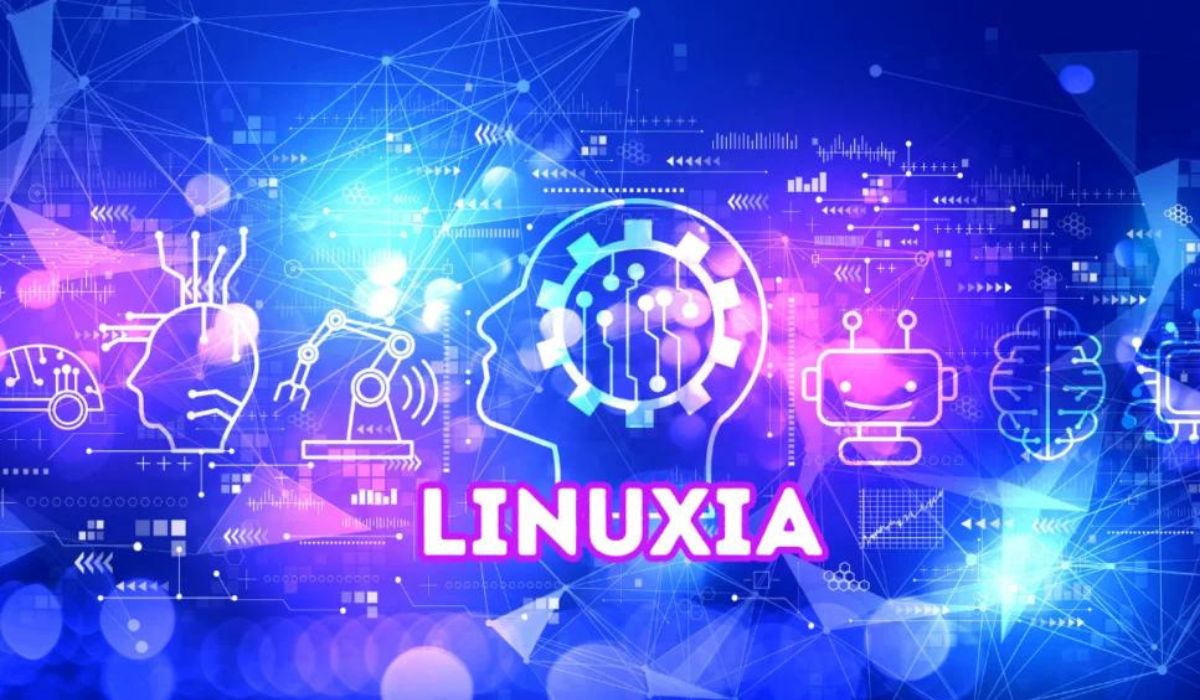Introduction
In recent years, the open-source community has witnessed a remarkable surge in interest and innovation. A recent statistic reveals that over 30% of the world’s servers now run on Linux-based operating systems, highlighting a significant shift toward open-source solutions. Among these, Linuxia stands out as a reliable, secure, and customizable operating system that meets the diverse needs of users today. This article explores the significance of Linuxia, outlining its key features, versatility, security, and future within the tech landscape.
Overview
This article will cover the following aspects of Linuxia:
- Definition and unique features
- Versatility in various applications
- Robust security and reliability
- Customization options
- Comparison with other operating systems
- Future trends and community growth
What is Linuxia?
Definition
It is an open-source operating system built on the Linux kernel, designed to be user-friendly while providing powerful capabilities for both casual users and advanced developers. It is not just a mere variation of Linux but a distinct platform that enhances user experience and system performance.
Relationship to Linux
It is fundamentally based on the Linux kernel, which serves as the core of the operating system. This foundation allows It to inherit the stability and efficiency associated with Linux while incorporating unique features and enhancements that cater specifically to its user base.
Key Features and Benefits
Some of the standout features of It include:
- Customizability: Users can modify the interface and functionality to suit their personal or organizational needs.
- Security: Enhanced security protocols make it less susceptible to malware and hacking attempts.
- Community Support: A vibrant community provides continuous updates, support, and resources.
- Lightweight Performance: Optimized for speed and resource efficiency, making it suitable for older hardware.
Linuxia’s Versatility and Applications
Server Environments
It plays a crucial role in server environments, where it is used to host websites, databases, and various server applications. Its robustness and ability to handle high loads make it a popular choice for businesses looking to maximize uptime and performance.
Desktop Use
For personal computing, It offers a refreshing alternative to traditional operating systems. Its user-friendly interface and rich software ecosystem provide users with all the tools they need for productivity, entertainment, and creative tasks.
Embedded Systems
The rise of the Internet of Things (IoT) has positioned It as a key player in embedded systems. From smart home devices to industrial applications, Linuxia’s lightweight architecture makes it ideal for integration into various IoT devices.
Scientific Computing
Researchers and scientists often turn to It for its powerful computational capabilities. The operating system is widely used in academic and research institutions for simulations, data analysis, and complex calculations, making it a preferred choice in the scientific community.
Security and Reliability
Robust Security Features
It comes equipped with a range of built-in security mechanisms, such as:
- User Permissions: Controls access to files and system functions, preventing unauthorized changes.
- Regular Updates: Frequent updates help patch vulnerabilities and improve overall security.
- Firewall and Encryption: Advanced tools for protecting data and communications.
Open-Source Advantage
The open-source nature of It allows anyone to inspect, modify, and enhance the source code. This transparency leads to quicker identification and resolution of security vulnerabilities compared to proprietary systems.
Community Support
It community plays a pivotal role in maintaining security. Active contributors continuously monitor for vulnerabilities, develop patches, and provide support to users, ensuring a safer computing experience.
Customization and Flexibility
Configurability
One of the main attractions of Linuxia is its configurability. Users can choose from a variety of desktop environments, themes, and applications, tailoring the operating system to fit their specific needs and preferences.
Package Management
Installing and managing software on Linuxia is streamlined through package management systems. Users can easily find, install, update, and remove applications with just a few commands or clicks.
Shell Scripting
For those who want to automate tasks, Linuxia supports shell scripting. This feature allows users to write scripts that can perform complex tasks automatically, saving time and increasing efficiency.
Linuxia vs. Other Operating Systems
Comparison with Windows and macOS
While Windows and macOS offer polished experiences, Linuxia presents several advantages:
- Cost: Linuxia is free to download and use, unlike many proprietary operating systems that require purchase.
- Customization: Linuxia allows for deep customization, unlike the more rigid frameworks of Windows and macOS.
- Performance: Linuxia is often faster and more resource-efficient, especially on older hardware.
Unique Selling Points
Some distinctive features of Linuxia include:
- Open-source nature: Users benefit from a transparent development process.
- Extensive community support: A vibrant user community fosters collaboration and innovation.
- Versatile applications: Suitable for a wide range of environments, from servers to desktops.
Choosing the Right OS
When considering whether to adopt Linuxia or another operating system, factors to keep in mind include:
- Technical Expertise: Linuxia may require a steeper learning curve for those unfamiliar with Linux.
- Specific Needs: Consider what applications or functionalities are essential for your use case.
- Support and Community: Evaluate the availability of support and resources for each operating system.
The Future of Linuxia
Emerging Trends
As technology evolves, Linuxia is poised to embrace emerging trends such as AI integration, enhanced cloud computing capabilities, and further developments in IoT. This adaptability will ensure Linuxia remains relevant in a rapidly changing tech landscape.
Community Growth
The Linuxia community continues to expand, attracting new users and developers who contribute to its growth. This vibrant ecosystem encourages collaboration, driving innovation and providing ongoing support to users.
The Future of Open-Source
Linuxia is at the forefront of the broader open-source movement. As more organizations recognize the benefits of open-source solutions, Linuxia’s role is likely to increase, promoting transparency, collaboration, and innovation.
You May Also Like: Explore Wadware: The Innovative Future of Content Management
Conclusion
In summary, Linuxia stands as a powerful, versatile, and secure operating system that caters to a wide range of users and applications. Its robust features, customization options, and supportive community make it an excellent choice for anyone looking to embrace the benefits of open-source technology. As Linuxia continues to evolve, it is set to play a significant role in shaping the future of computing.
FAQs
What is Linuxia?
Linuxia is an open-source operating system based on the Linux kernel, designed for reliability, security, and customization.
What are the key benefits of using Linuxia?
Key benefits include enhanced security, customizability, a vibrant community, and efficient performance.
Is Linuxia suitable for personal use?
Yes, Linuxia is user-friendly and provides a great alternative to traditional operating systems for personal computing.
How does Linuxia compare to Windows and macOS?
Linuxia is cost-effective, highly customizable, and often faster than Windows and macOS, especially on older hardware.
What is the future of Linuxia?
Linuxia is set to grow with trends in AI, cloud computing, and IoT, reinforcing its place in the open-source movement.











